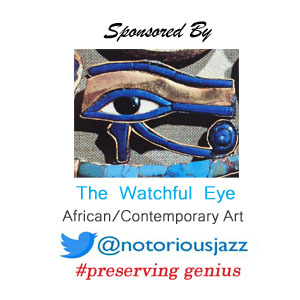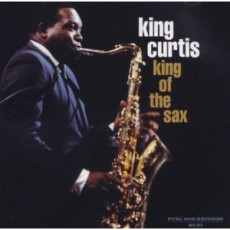
Daily Dose Of Jazz…
Born Curtis Ousley on February 7, 1934 in Fort Worth, Texas he was known to the jazz world as King Curtis. He learned to play the saxophone and as a youth he played in the same high school band as Ornette Coleman. He led his own group while in school and by 19 was touring with Lionel Hampton before settling in New York. Once there he led a trio containing Horace Silver.
Becoming involved in session work in the mid-50’s Curtis’ prominence rose, playing behind the Coasters and others, then replaced Red Prysock in the Alan Freed radio show band. Regular live appearances at Small’s Paradise and the Apollo Theatre between the late 50’s and early 60’s led him to become musical and studio director for Aretha Franklin and others. During this period he recorded a number of singles for Atco, Prestige and Capitol and Atlantic record labels cranking out hits like Soul Serenade, Memphis Soul Stew and Ode To Billy Joe.
Curtis played tenor, alto and soprano saxophones and was the last of the great R&B tenor sax giants. He was known for his distinctive riffs and solos and loved playing jazz, funk, and rhythm and blues, but chose to make his living playing rock and roll.
All aspects of his career were in full swing at the time he became embroiled in an argument with two men outside his 86th Street apartment in New York City. One of the men stabbed him in the heart and after being rushed to Roosevelt Hospital, King Curtis died from his wound on August 13, 1971. He was 37 years old. On the day of his funeral, Atlantic Records closed its offices.
More Posts: saxophone
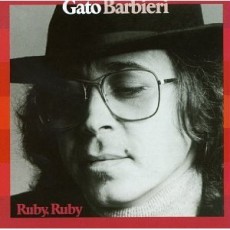
Daily Dose Of Jazz…
Gato Barbieri was born Leandro Barbieri on November 28, 1932 in Rosario, Santa Fe Province, Argentina into a family of musicians. He began playing music after hearing Charlie Parker’s “Now’s the Time”, first playing the clarinet and later the alto saxophone while performing with his fellow countryman pianist Lalo Schifrin in the late 1950s.
By the early 1960s in Europe he worked with Don Cherry, became influenced by John Coltrane’s later recordings as well as free jazz saxophonists Albert Ayler and Pharoah Sanders. He developed a warm and gritty sound that became Gato’s trademark and by the late Sixties began fusing music from South America and contributed to Charlie Haden’s Liberation Music Orchestra and Carla Bley’s Escalator Over The Hill.
Barbieri earned a Grammy for the score of Last Tango In Paris, which led to a recording deal with Impulse Records. By the mid-70s, he was recording for A&M Records and moved his music towards soul-jazz and jazz-pop with albums like “Caliente!” and “Ruby Ruby”. As a leader he has recorded some thirty albums and as a sideman has played and recorded another nine with Dollar Brand, Gary Burton, the Jazz Composers Orchestra among others. The saxophonist has received the UNICEF Award and continued to compose, perform and record until his passing on April 2, 2016 in New York City.
More Posts: saxophone
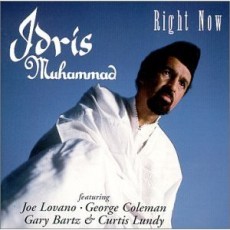
Daily Dose Of Jazz…
Idris Muhammad was born Leo Morris on November 13, 1939 In New Orleans, Louisiana. Learning to play drums in his youth, at fifteen he played on Fats Domino’s 1956 hit “Blueberry Hill” and by sixteen he turned professional, playing primarily soul and R&B during the early sixties. In 1965 he was a member of Lou Donaldson’s band, then went on to become the house drummer for Prestige Records from 1970-72.
As a sideman Idris would play with Johnny Griffin, Nat Adderley, George Benson, Paul Desmond, Pharoah Sanders, George Coleman and the Paris Reunion Band and record with Ahmad Jamal, Grant Green, Grover Washington, Jr., Hank Crawford, Benjamin Herman, Andrew Hill, Freddie Hubbard, Bobbi Humphrey, Gene Ammons, Rodney Jones and Houston Person among others.
Known for his funky playing style, as a leader he has recorded everything from post-bop to dance music for such labels as Prestige, Kudu, Fantasy, Theresa, and Lipstick. He changed his name in the 1960s upon his conversion to Islam and is endorsed by Istanbul Agop cymbals. Drummer Idris Muhammad continues to compose, record and perform.
More Posts: drums
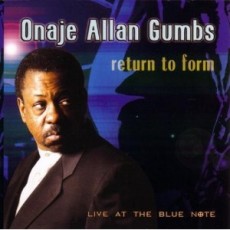
Daily Dose Of Jazz…
Onaje Allan Gumbs was born Allan Bentley Gumbs on September 3, 1949 in Harlem, New York but grew up in St. Albans, Queens. Starting to play piano at age 7, Henry Mancini was one of his earliest and greatest influences, hearing Peter Gunn and Mr. Lucky themes on television. He later studied at the Music and Art High School in Manhattan and was mentored by Erskine Tate Alum Leroy Kirkland.
During this time, he was playing in a Latin band, a big band, playing piano duets and listening to records made by Motown and Blue Note, developing an interest in R&B in conjunction with the straight-ahead jazz of Horace Silver, Dizzy Gillespie, Lalo Schifrin, Gil Evans, Miles Davis, McCoy Tyner and John Coltrane. He went on to study classical piano, composition, arranging and graduated with a degree in Education at the State University of New York at Fredonia in upstate New York.
In 1971, Leroy Kirkland introduced Onaje to guitarist Kenny Burrell and a subsequent gig led him to play with Larry Ridley and the Thad Jones/Mel Lewis Orchestra. He would join jazz ensemble Natural Essence that included Thelonious Monk Jr. In 1972he went to work with Norman Connors as an arranger on the Dark of Light album and contributed keyboards on the albums Love From the Sun, Saturday Night Special, You Are My Starship, Invitation and Mr. C.
Toward the late 1970s, Onaje spent two years working in Woody Shaw’s band as pianist, arranger, and occasional composer, in which the group won the Down Beat Reader’s Poll for Best Jazz Group and for Best Jazz Album in 1978 for Rosewood. His first solo piano project was simply titled Onaje and was followed by venturing into R&B and subsequently ending up on the smooth jazz charts and rotations for nearly 20 years with his composition “Quiet Passion”.
In 2003, Onaje return to straight-ahead with his release of the live album Return to Form, and garnering critical acclaim the next year with a project on his own label, Ejano, titled Remember Their Innocence. These were followed with Sack Full of Dreams before his stroke in 2010 but by year end had recorded and release Just Like Yesterday in Japan, with all signs of a stroke vanished. His sideman work has included stints with Buster Williams, Cecil McBee, and Betty Carter and most recently with Avery Sharpe on the 2012 album Sojourner Truth: Ain’t I A Woman.
He has received the Min-on-Art Award, has his song Dare To Dream chosen by Panasonic as the theme for their 10th anniversary celebration of Kid Witness News, composed, arranged and performed the original score for the Showtime film, Override and was nominated for an NAACP Image Award.
Suffering a stroke in 2010 he was able to return to music two weeks later. In 2015 he was hospitalized again for two weeks but made a full recovery and returned to composing and performance. Pianist, composer, arranger and bandleader Onaje Allen Gumbs passed away at 70 on April 6, 2020.
More Posts: piano

Daily Dose Of Jazz…
Dr. Lonnie Smith was born July 3, 1942 in Lackawanna, New York into a family with a vocal group and radio program and a mother who introduced him to gospel, classical and jazz music. He learned to play piano as a child and was part of several vocal ensembles in the 1950s, including the Teen Kings. Local music storeowner Art Kubera gave Smith his first Hammond B3 organ.
Smith’s affinity for R&B melded with his own personal style as he became active in the local music scene. Moving to New York City he met and connected with George Benson, and the two formed the George Benson Quartet, featuring Lonnie Smith, in 1966.
Lonnie recorded his first solo album ”Finger Lickin’ Good” in 1967, with Benson, Melvin Sparks and Ronnie Cuber and Marion Booker. After recording several albums with Benson, Smith became a solo recording artist. In 1967, Smith meeting Lou Donaldson led to a Blue Note introduction, a record date for Alligator Boogaloo and subsequent signing to a four-album deal.
He has since recorded over 30 albums under his own name. He has performed and recorded with among others Lee Morgan, David “Fathead” Newman, Blue Mitchell, King Curtis, Esther Phillips, Bennie Maupin, Idris Muhammad, Joey DeFrancesco and Joe Lovano, however the list inside and out of jazz is too long to enumerate.
He has been named “Organ Keyboardist of the Year” in 2003, 2004, 2005, 2008, and 2009 by the Jazz Journalist Association and continues to tour, perform and record.
More Posts: organ




